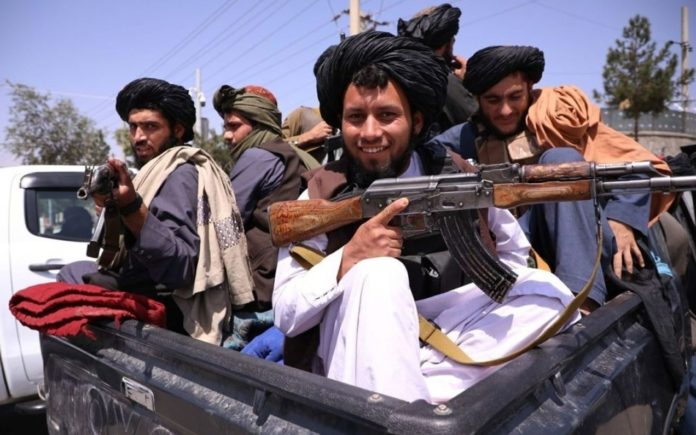The deadly suicide bombing in front of the Kabul airport has raised new questions about whether the Taliban will have the capacity to maintain basic security.
Just hours before the August 31 deadline, US forces withdrew completely from Afghanistan after nearly 20 years. But the country, now controlled by the same militia group that the US military removed from power decades ago, is not stable at all.
The deadly suicide bombing in front of Kabul airport by ISIS-K, the local affiliate of the Islamic State and ideological rival of the Taliban, has raised new questions about whether the Taliban will have the capacity to maintain even basic security after the departure of United States.
Great foreign powers are unclear on how to deal with the Taliban. But they all share a common interest: to do whatever it takes to prevent new terrorist attacks and a refugee crisis.
These are the main ones:
The US was willing to withdraw from Afghanistan, but that does not mean that Afghanistan is no longer a problem for the United States. For the US, the chaotic withdrawal and the first deaths of US soldiers since the 2020 peace deal with the Taliban are a sobering reminder that they will have to continue to keep an eye on the country. After all, ensuring that Afghanistan will never be the scene for another 9/11 was the main reason for the invasion.
To complicate matters further, Afghanistan will soon become a blind spot for American intelligence. Without soldiers on the ground, it will be very difficult to detect whether ISIS-K or a resurgent al Qaeda is planning attacks against American interests. Ideas about the United States sharing intelligence with the Taliban are wishful thinking at best, so a beleaguered Joe Biden needs some solution.
If the US wants to stay in the intelligence circuit on Afghanistan, it will have to rely on friends more willing to work with the Taliban. Two important ones are also NATO ally Turkey and Qatar, whom the Taliban have asked for help to maintain security and operate the Kabul airport. Both have yet to respond to the offer but will consider it carefully because they both have interests.
The Turks want to keep Afghanistan as stable as possible to prevent a mass exodus of Afghans who end up in Turkey trying to reach Europe, while the Qataris, who hosted the Taliban leadership during the peace negotiations with the US, have emerged with an unexpected diplomatic weight in this crisis.
There is also an influential neighbor of Afghanistan with a complicated relationship with the US: Pakistan. It is perhaps the country that seems to benefit the most from the Taliban’s military success, with the creation of the Pakistani Intelligence Service (ISI). But they also want to avoid more chaos in Afghanistan, especially if it means that the Pakistani Taliban (TTP) start to cause problems at the border, as well as more refugees in a country that is already the most welcoming by far.
Relations between the US and Pakistan have soured since the 2011 assassination of Osama Bin Laden on Pakistani soil and the countless deaths of Pakistani civilians in US drone strikes, pushing Islamabad closer to China (which has its own problems). In any case, Pakistanis have influence over Uncle Sam because the United States will need access to its airspace to launch drone strikes from Qatar against terrorists inside Afghanistan. Islamabad can accept, perhaps in exchange for more billions of dollars in US military aid.
Two American adversaries who also want a stable Afghanistan are China and Russia. The Chinese have long hinted that they will recognize the Taliban if they restore something akin to law and order, because Beijing wants Afghanistan to get on the New Silk Road in exchange for access to its mineral riches. Xi Jinping knows that the Taliban need money that does not come from opium, while the Taliban know that Xi needs guarantees that the infrastructure built by China will not be destroyed by ISIS-K or anyone else.
Meanwhile, the Russians, with a long history of jihadist violence on their own soil, are doing their best to help secure Afghanistan’s porous borders, hoping the Taliban will return the favor by keeping Islamists away from former Soviet republics in Central Asia.
Ultimately, however, it all depends on the Taliban. As the ‘de facto’ government of Afghanistan, they must prove that they can maintain security. But just as they have learned that seizing power is easier than running a country, the Taliban will soon realize that keeping the peace will be much more difficult than winning the war.
Photo by Haroon Sabawoon/Anadolu Agency via Getty Images
